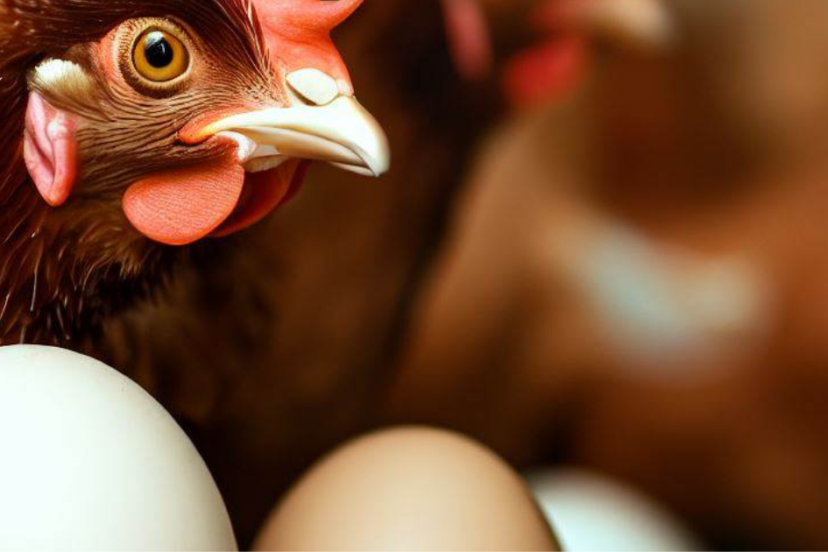I understand the excitement that comes with anticipating your chickens’ first eggs. One common question that arises is, “How old are chickens when they start laying eggs?” It’s crucial to have a clear understanding of the factors influencing egg-laying age to ensure optimal care and expectations for your feathered friends.
Factors Affecting Egg Laying Age
Several factors can influence the
age at which chickens start laying eggs. Genetic factors play a significant role, as different breeds have variations in their development and maturity. Additionally, specific breed characteristics may affect the egg-laying age. Nutritional requirements and environmental conditions, such as lighting and temperature, also impact when chickens begin laying.
Age Range for Egg Production
The age range for egg production can vary among different chicken breeds. Some breeds may start laying as early as four to five months, while others might take up to six to seven months or even longer. It’s important to note that individual variations within a breed can also affect the age at which hens begin to lay eggs.
Signs of Readiness to Lay Eggs
To determine if your chickens are ready to lay eggs, it’s essential to observe both physical signs of maturity and behavioral indicators. Physical signs include the development of a redder and larger comb, prominent wattles, and a more pronounced pelvic bone structure. Behavioral signs may include nesting behavior, such as exploring potential nesting spots or exhibiting a broody nature.
Preparing for Egg Laying
To support your chickens in their egg-laying journey, it’s crucial to provide suitable nesting boxes, ensuring they are comfortable, clean, and easily accessible. A balanced and nutritious diet plays a vital role in promoting egg production. Offering a feed specifically formulated for laying hens, supplemented with calcium-rich sources, will support healthy eggshell formation.
First Egg Expectations
When yourchickens start laying eggs, it’s important to adjust your expectations for the first eggs. They may be smaller in size and have varying appearances compared to later eggs. This is normal as the hens’ reproductive systems gradually mature. Over time, you will notice an increase in egg size and consistency.
Importance of Patience and Monitoring
Patience is key when waiting for your chickens to start laying eggs. Each hen develops at her own pace, so it’s important to monitor their progress regularly. Keep an eye out for physical and behavioral changes that indicate readiness to lay. Remember, it can take some time for all the hens in your flock to reach egg-laying age.
Common Challenges and Solutions
While most chickens begin laying eggs without any issues, there can be occasional challenges. Delayed egg production, erratic laying patterns, nutrition-related problems, and health concerns may arise. It’s important to address these challenges promptly. Consult with a veterinarian or experienced poultry keeper to identify the cause and find suitable solutions.
Caring for Laying Hens
Once your chickens start laying eggs, it’s crucial to provide them with proper care to maintain their health and productivity. This includes offering a balanced diet rich in essential nutrients, especially calcium. Consider providing calcium supplements or offering oyster shell grit to support eggshell formation. Adequate lighting and ventilation in the coop are also essential for their well-being. This includes ensuring having the right
Chicken Coop Window.
Conclusion
Understanding when chickens start laying eggs is an exciting aspect of poultry keeping. By considering the factors that influence egg-laying age, being patient, and providing appropriate care, you can support your chickens’ egg-laying journey. Remember, each hen is unique, and they will start laying eggs at their own pace. Enjoy the process and the rewards of fresh, homegrown eggs.
FAQs
1. How long does it take for chickens to start laying eggs?
The age at which chickens start laying eggs can vary, but it typically ranges from four to seven months, depending on the breed and individual development.
2. Can all chicken breeds lay eggs at the same age?
No, different chicken breeds have variations in their egg-laying age. Some breeds may start laying earlier than others.
3. Is it possible to speed up the egg-laying process?
The egg-laying process is influenced by various factors, including genetics and maturity. While you can provide proper care and nutrition, it’s not possible to significantly accelerate the natural development of a chicken’s reproductive system.
4. Why hasn’t my chicken started laying eggs yet?
Several factors can contribute to delayed egg production, such as breed characteristics, environmental conditions, or nutritional imbalances. Patience is key, but consulting with a poultry expert can help identify any underlying issues.
5. Can you predict the exact age when a chicken will start laying eggs?
While you can estimate the age range for egg-laying based on breed characteristics, each chicken is unique. It’s challenging to predict the exact age when a specific hen will start laying eggs. Monitoring physical and behavioral changes will provide better insights into their readiness.
*We may earn a commission from purchases made through our links, at no cost to you. This does not affect our product recommendations. Please see our disclosure to learn more.




